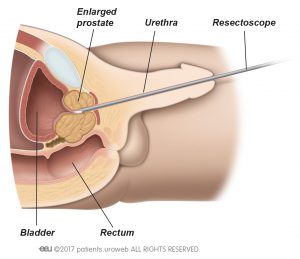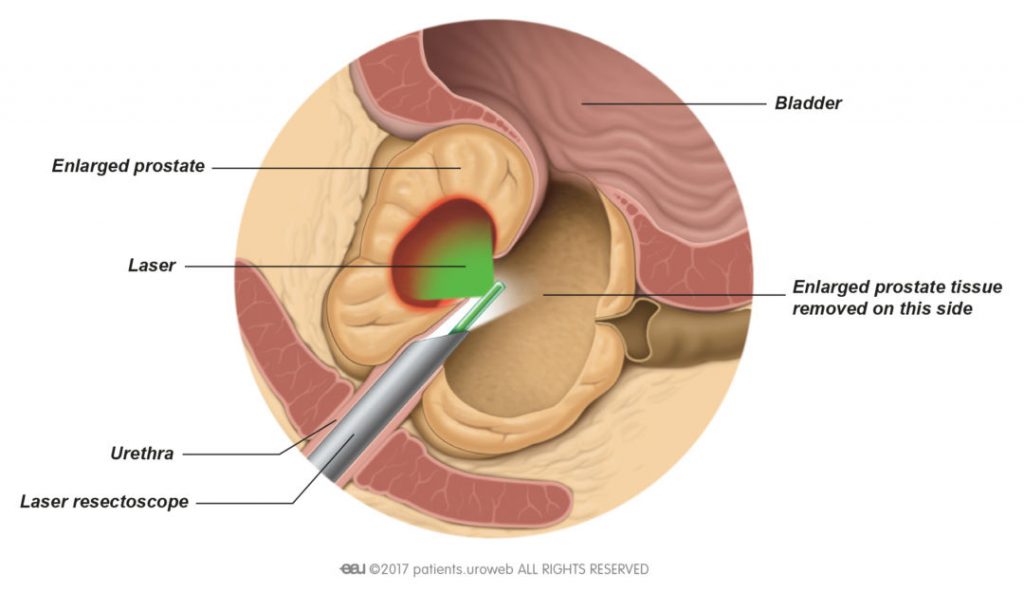Table of Contents [hide]
Benign prostatic enlargement (BPE) can affect the way you normally urinate. This happens because the enlarged prostate compresses the urethra at the outlet of the bladder. Laser vaporisation of the prostate is a surgical treatment for BPE. This treatment uses a laser to remove the enlarged part of the prostate (adenoma). This should relieve your symptoms and improve the flow of urine.
How is laser vaporisation performed?
For laser vaporisation you will receive general or spinal anaesthesia. Once you are under anaesthesia, the doctor uses a laser resectoscope to enter your bladder through the urethra without making an incision in your lower abdomen (Fig. 1). The resectoscope has a laser for vaporisation and a small camera. The camera allows the doctor to see a high-quality image of the prostate on a video monitor.
During the procedure, the laser heats up a small part of the prostate. When the prostate tissue reaches boiling point it starts to vaporise. In this way, the enlarged parts of the prostate can be treated (Fig. 2). After the operation a urinary catheter will be placed in your bladder to drain urine. It is also used to continuously flush your bladder and urethra with sterile solution to prevent blood clots. You will need the catheter for some days until the urethra is healed and you can urinate on your own.
When should I consider laser vaporisation of the prostate?
Vaporisation may be an option if your prostate is smaller than 80 millilitres. Because vaporisation causes very little blood loss, it is recommended to men who need to take special blood-thinning medication (other than aspirin 100) for other conditions and cannot pause the intake.
How to prepare for the procedure
Your doctor will advise you in detail about how to prepare for the procedure. You must not eat, drink, or smoke for 6 hours before surgery to prepare for the anaesthesia. If you are taking any prescribed medication, discuss it with your doctor. You may need to stop taking it before surgery.
How long will it take me to get back to my daily activities?
Usually you can leave the hospital 1 or 2 days after surgery. The length of hospital stay can vary in different countries. There may be some blood in your urine and you may feel pain when you urinate. This can last up to several weeks.
For 4-6 weeks after the surgery:
- Drink 1-2 liters every day, especially water
- Do not lift anything heavier than 5 kilograms
- Do not do any heavy exercise and avoid bike riding
- Do not take thermal baths or go to the sauna
- Prevent constipation by adapting your diet
- Discuss any prescribed medication with your doctor
Avoid having sex for 2-3 weeks. After laser vaporisation, you may suffer from retrograde ejaculation. This is a chronic condition where semen can no longer leave through the urethra during orgasm. Instead, it goes into the bladder and later leaves your body during urination.
You need go to your doctor or go back to the hospital right away if you:
- Develop a fever
- Are unable to urinate on your own
- Have heavy blood loss or pain



